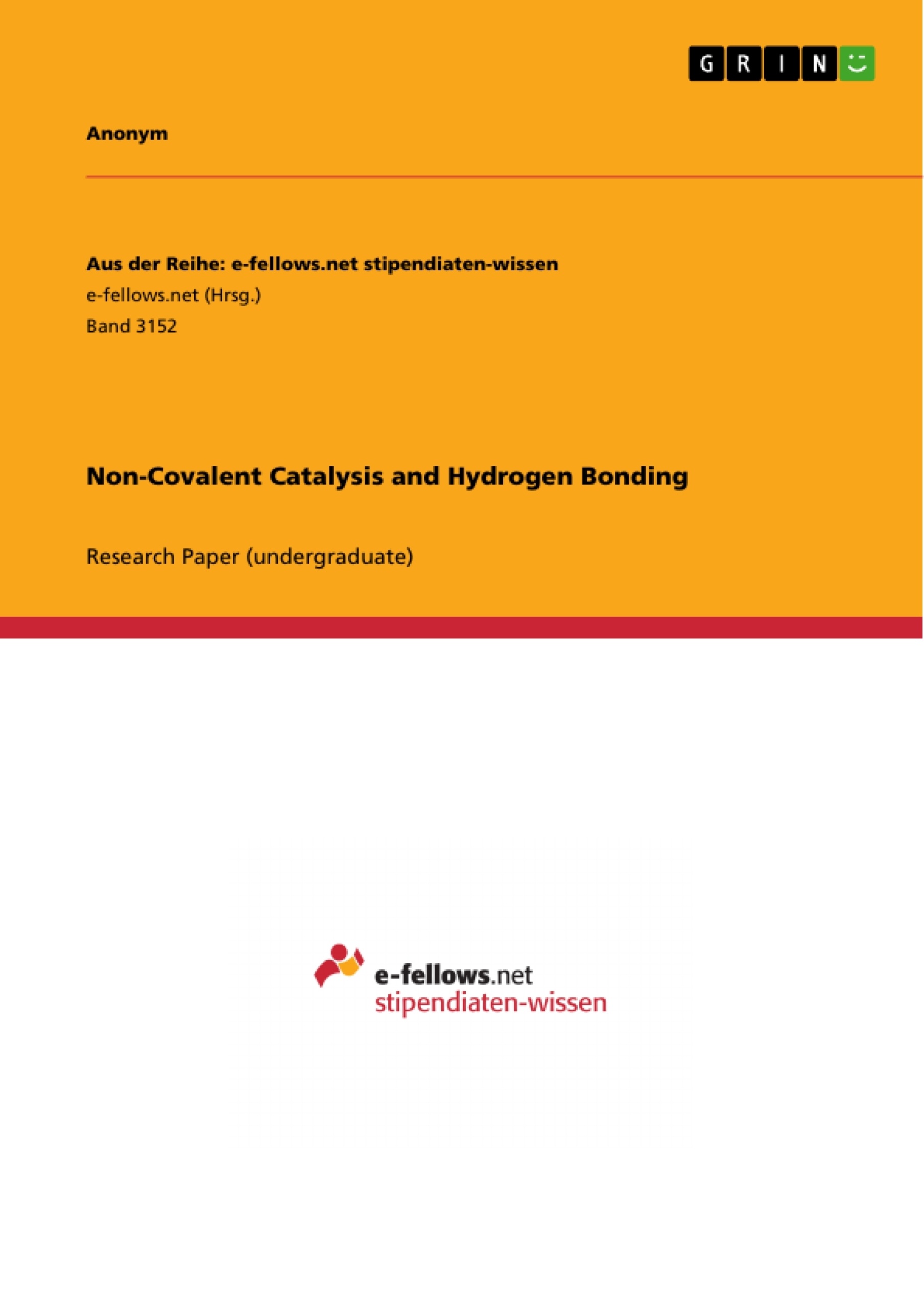This work is about the non-covalent catalysis and concentrates on the hydrogen-bond catalysis.
Nowadays it is common to use catalysis in organic synthesis. It can help in orienting the substrates, lowering barriers to reaction and accelerating the rates of reaction.
In addition to metal-ligand systems and biocatalysts, there is another class of catalysts, the organocatalysts which are free of any metals, like many enzymes. The organocatalysts often consist of chiral compounds. The output materials are easy to find in the nature.
How these catalysts accelerate the reaction rates is a central question in organic synthesis. It is important to distinguish the interactions with the organic substrates between covalent and non-covalent bonds. The activation of a carbonyl compound by conversion into an enamine or into an iminium ion belongs to the covalent catalysis, while to increase the electrophilicity of a carbonyl group by formation of hydrogen bondings is a typical example for non-covalent organocatalysis.
Thus, the acceleration and the control of the reaction rates depend on formation of hydrogen bonds for non-covalent organocatalysis. It is possible to catalyse two hydrogen bonds which occur in dual hydrogen bonding donors.
Contents
1 Introduction
2 Knowledge
2.1 Hydrogen-Bond Catalysis
2.1.1 Dual Hydrogen-Bonding Donor Catalysis
2.1.2 Bifunctional Catalyst System
2.1.3 Single Hydrogen-Bond Donation
2.2 Cyclodiphosphazane as Catalyst
3 Aim
4 Results and Discussion
4.1 Synthesis of Precursors
4.1.1 Synthesis of Chiral Amin Ligand
4.1.2 Synthesis of Dichlorocyclodiphosph(III)azane
4.2 Synthesis and Characterization of Catalysts
4.3 Asymmetric Michael Addition
5 Conclusion and Outlook
6 Experimental part
6.1 General Experimental Conditions and Analytic Methods
6.2 Experimental Procedures
6.2.1 Synthesis of ligand
6.2.2 Synthesis of precursor
6.2.3 Synthesis of Asymmetric Catalyst with Oxygen
6.2.4 Synthesis of Asymmetric Catalyst with Sulfur
6.2.5 Asymmetric Michael addition in different solvents
7 References
8 Appendices
- Quote paper
- Anonymous,, 2019, Non-Covalent Catalysis and Hydrogen Bonding, Munich, GRIN Verlag, https://www.hausarbeiten.de/document/492456



